American photographer from Michigan Logan Zillmer creates incredibly realistic conceptual photographs with a deep storyline, inspired by Charlie Chaplin and dreams of making movie. Logan successfully works in several genres of photography: advertising, portrait, landscape; we want to tell about his original conceptual photos, the creation of which, he says, allows him to remain himself. Inspired by paintings of the Hudson River School, Logan Zillmer creates plot and realistic pictures using the camera and Photoshop.
On your website there are 3 kinds of photos that you are making: a conceptual photo, a portrait and photos of landscapes. Why are you interested in these 3 kinds?
I love creating images based on a concept. I love ideas and doing something different. Conceptual photography was my main focus for the first couple years. However, I love photographing people and landscapes just as much. So, if I am able to do a piece that incorporates all three, that is the dream. I have an obsessive nature that extends to many things. These 3 categories are able to encompass all of my obsessions.



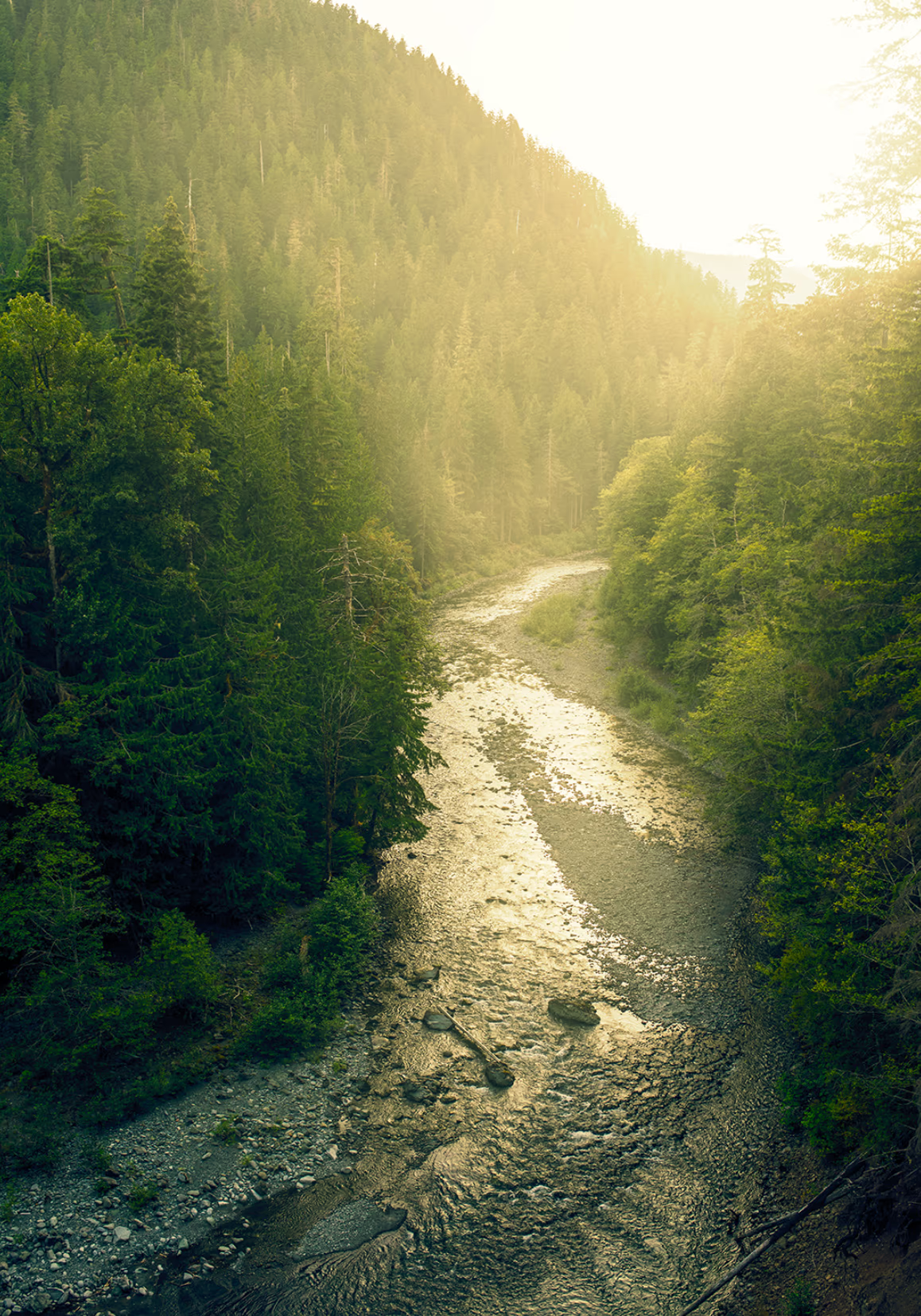
How do you come up with stories for your conceptual photos? Can you tell the process?
I don't know "how" anyone comes up with ideas, including myself. They come seemingly from out of nowhere at any time. However, I do have a process of getting myself into the right headspace to help flesh those ideas out, and it's just a matter of turning off the world and focusing. I always keep a journal at hand and I write down every potential idea I have, no matter how small or insignificant. Then I go back later and try to develop those further. You never know which one will become a big idea.

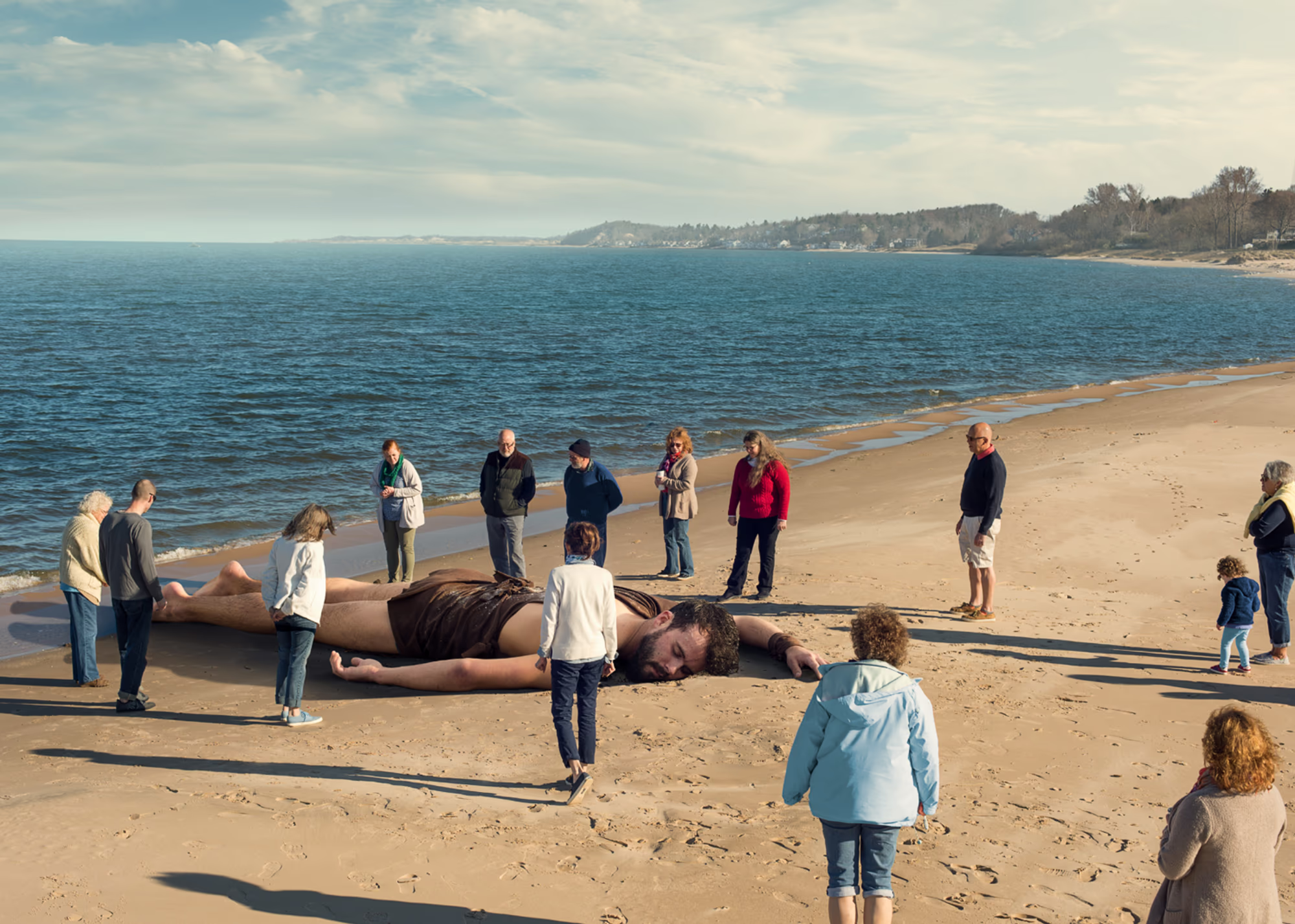
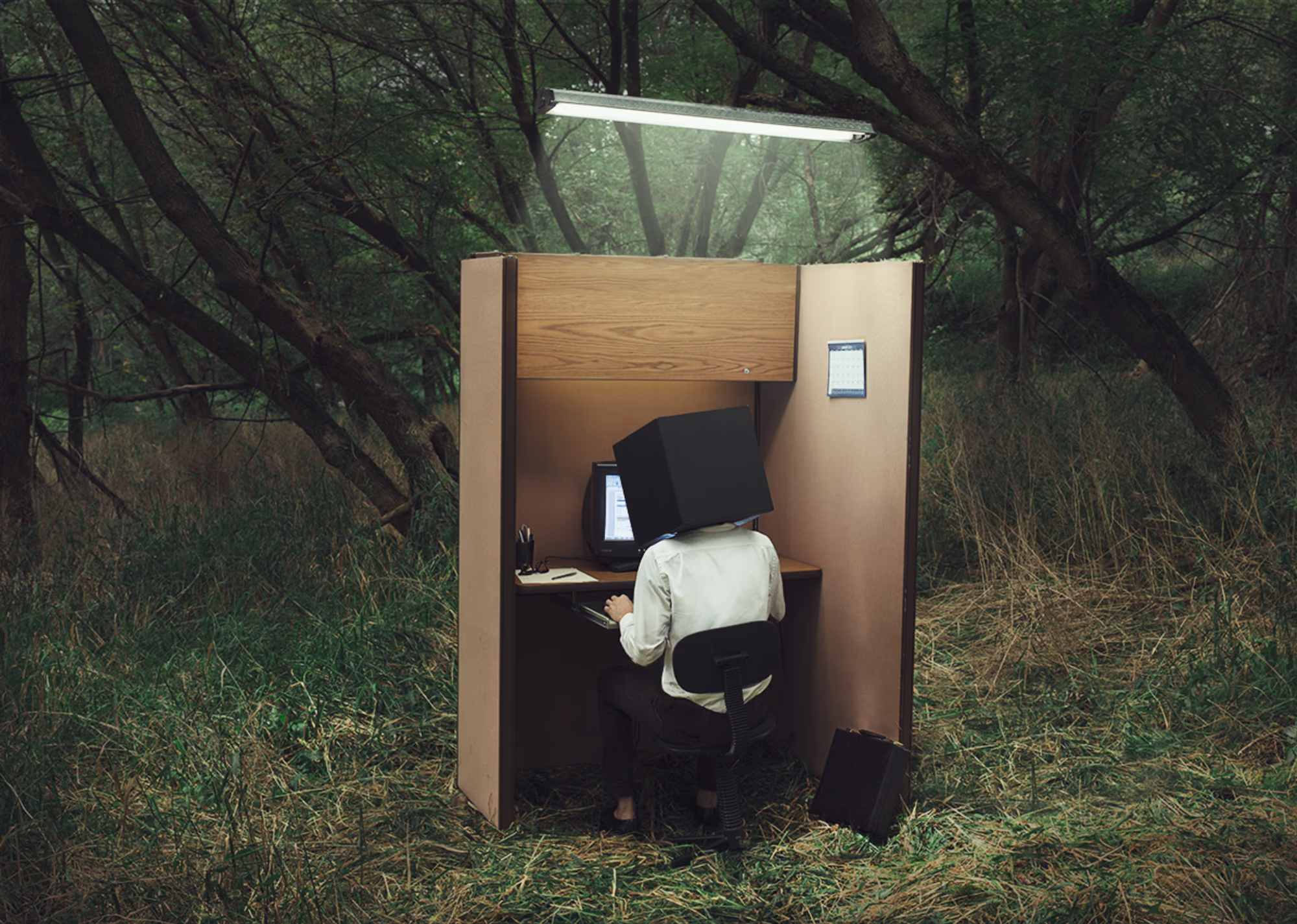
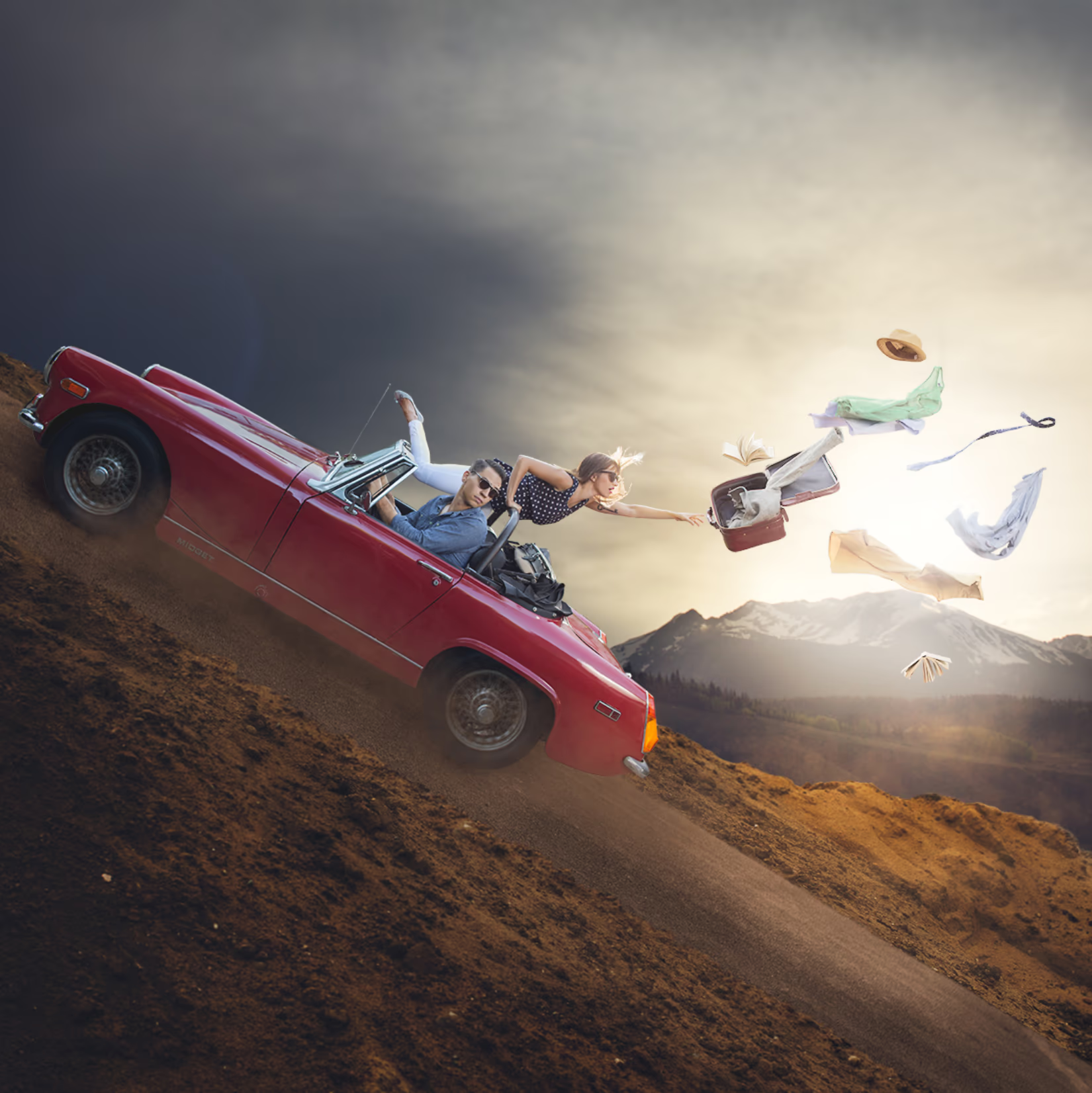
How long does preparation, shooting and post production take? What need to know to make the picture very realistic?
It depends entirely on the idea, but once the idea is solidified, the average conceptual image or series will take a week or two. The trick to making the image look realistic is to shoot every piece of it yourself, and be fastidious about light and scale.
Could you tell the story of creation one of your photos?
One of the most involved images I did was an image of a UFO that crash landed on a farm. This took nearly a month to complete because much of it was a miniature that I built, including the ground where it crashed. I photographed everything separately and assembled it in Photoshop, which took another week or so.

Can you in one sentence formulate a general characteristic for your conceptual photos? What are they? What do they give to the audience?
My conceptual works is generally based on mystery and is often tragicomic in nature, and, if nothing else, I hope they give the audience something to project their own thoughts onto.
Is photography for you a hobby or a major job?
Photography is my job. I am a full time editorial and commercial photographer. I also license and sell my personal work.
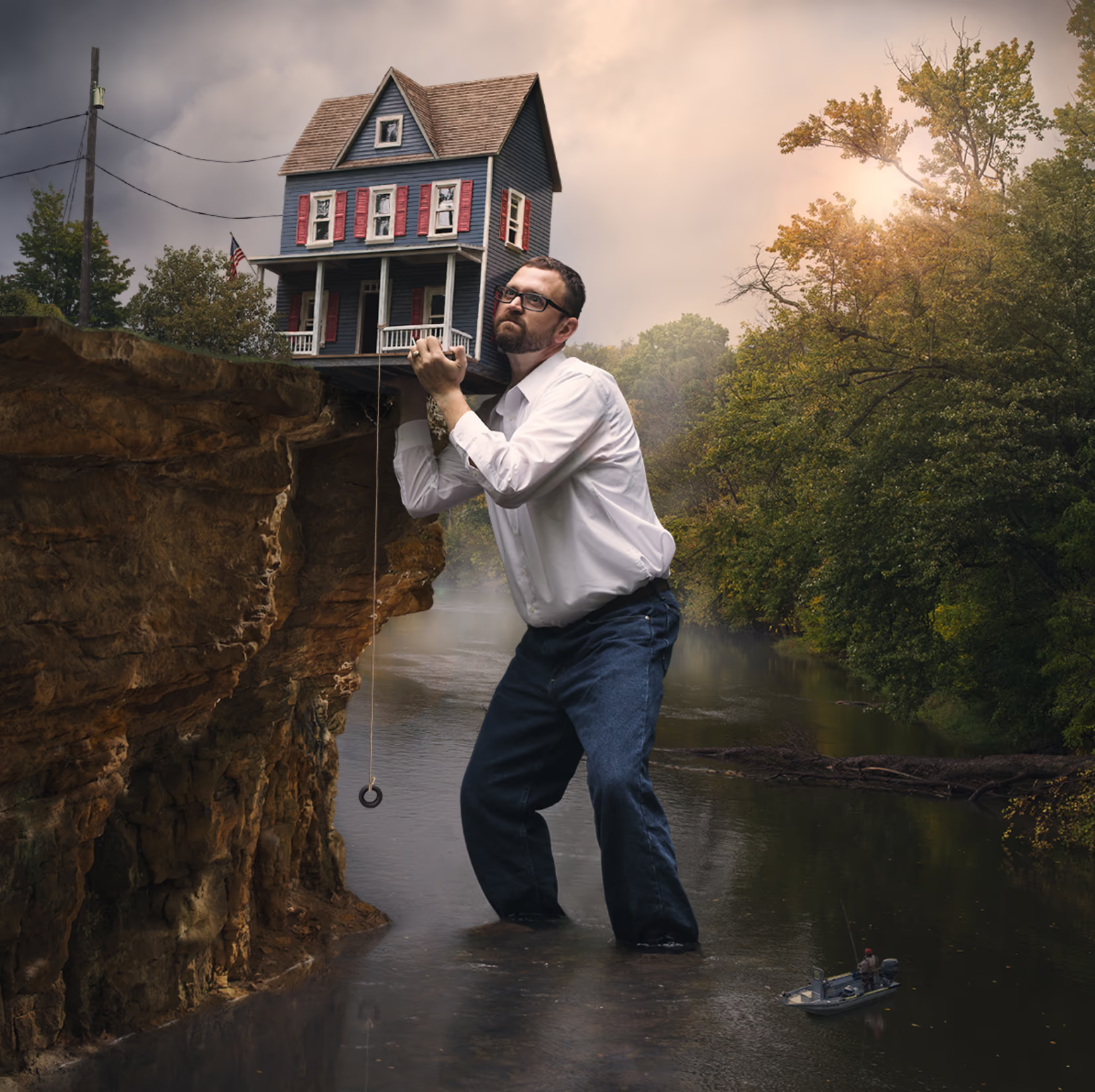

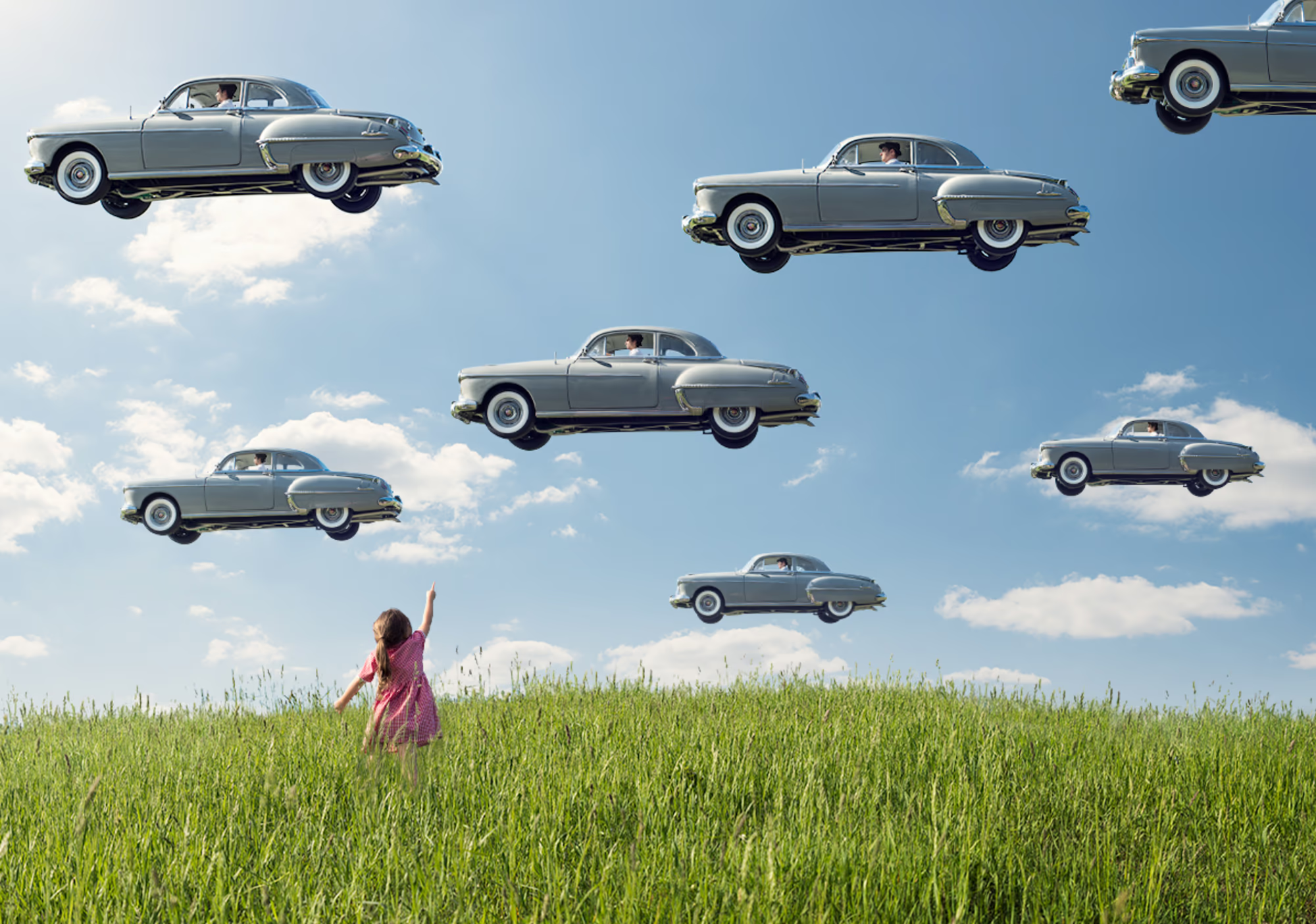
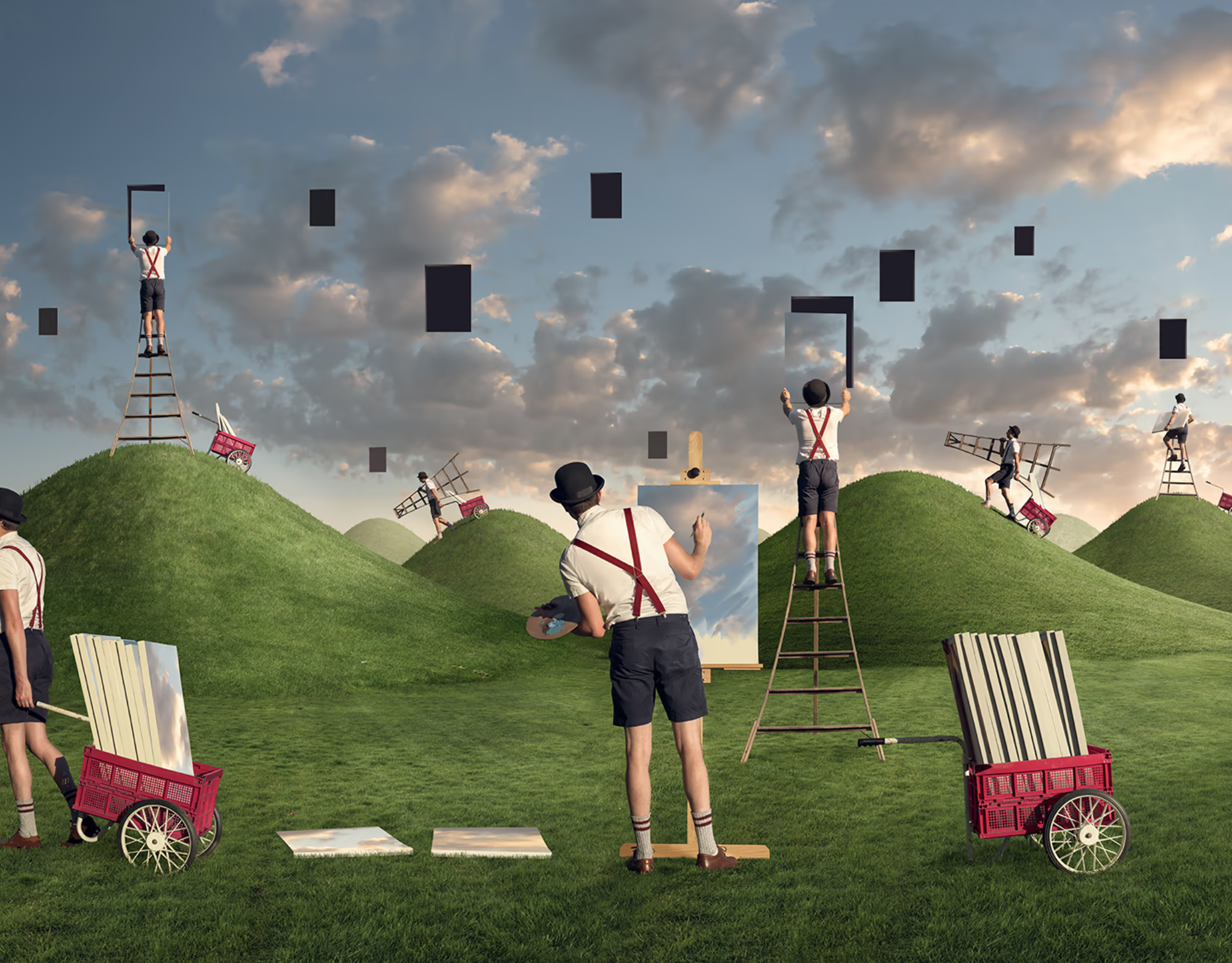
What works of photographers (or just creative people from other industries) inspire you?
Charlie Chaplin is my biggest influence. Buster Keaton, Edward Hopper. The Hudson River School and Luminist painters (Kensett, Church, Durand. Cole, etc), Magritte, Teun Hocks etc.
In addition to photography, in which branch of creativity would you like to try yourself? What would you like to do there?
I have a film degree. Movies were my first true love. I want to eventually write and direct movies or long-form television.
Can you find out your creative plans for the near future?
I am going to continue to pursue commercial photography. I want to shoot Key Art for movies and TV shows. I will also continue to work on personal projects, as that is what keeps me sane.

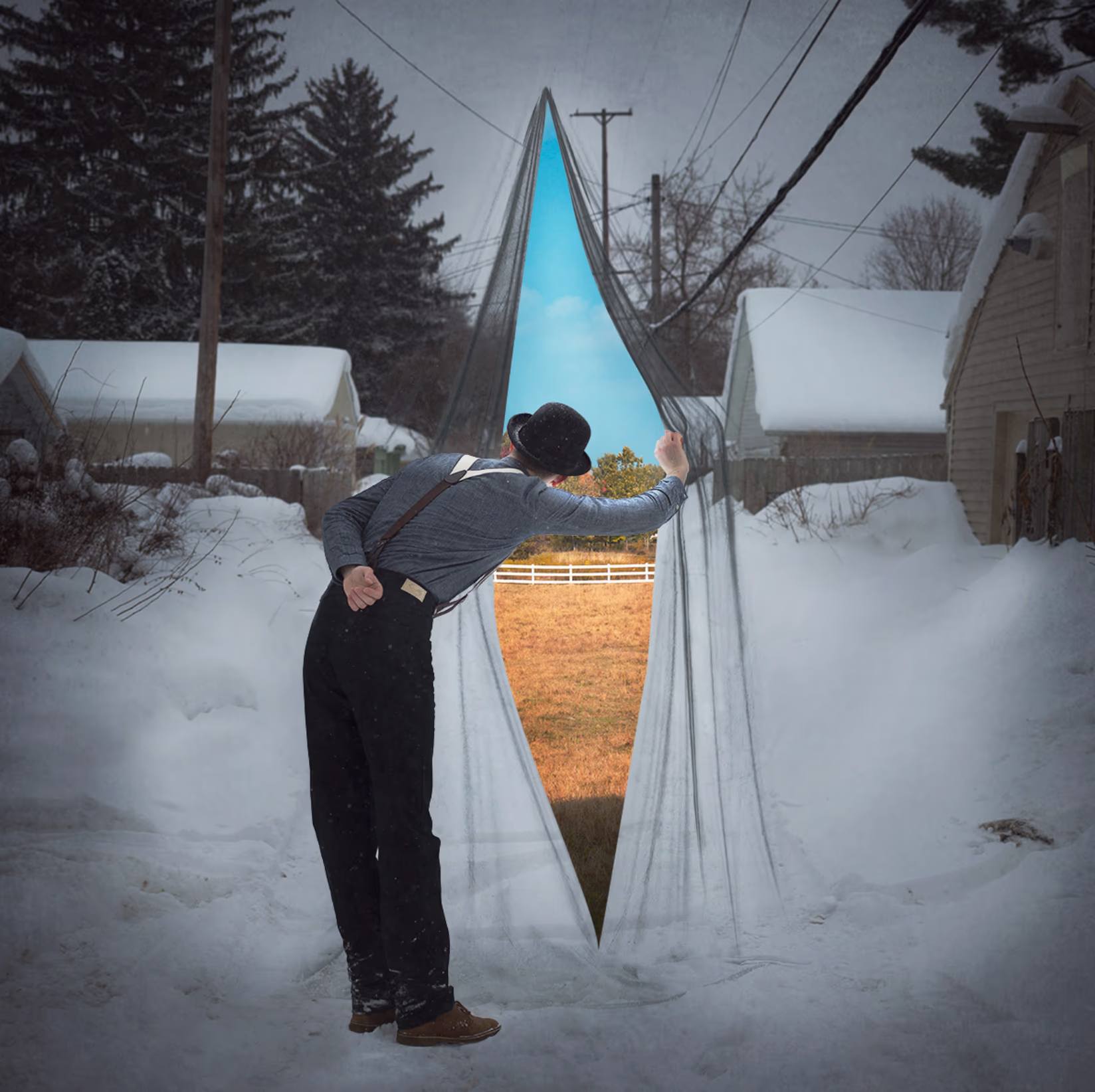
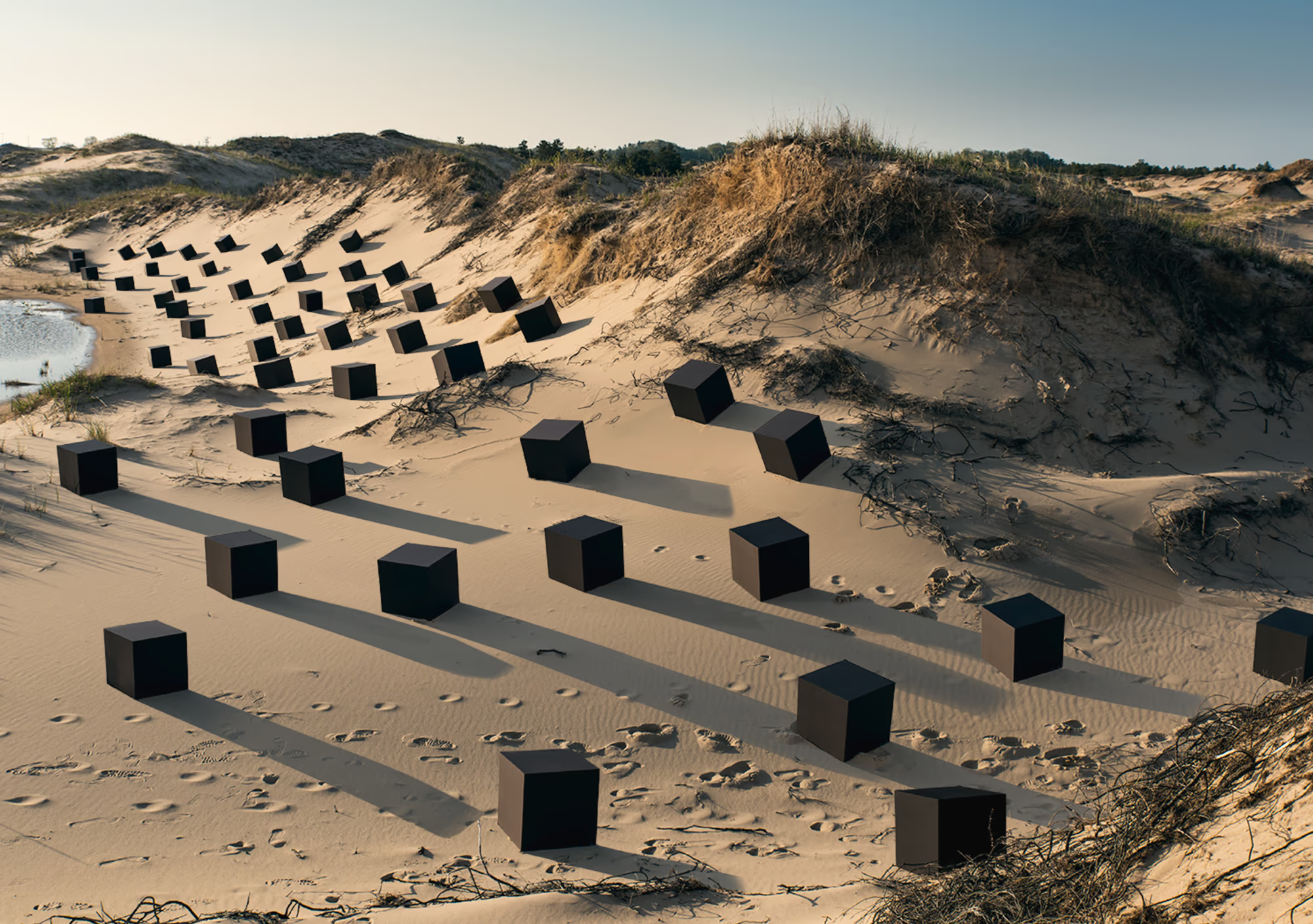
Have you ever visited Ukraine? Would you like to come here with the exhibition?
I have never visited the Ukraine. I would absolutely love to come visit there sometime.
What can you wish for beginners and amateurs in photography?
Find your voice, but always be evolving and experimenting. Always have a specific goal that you are trying to reach, and never, under any circumstances, give up. Pursuing any type of creative lifestyle is not easy, but you will eventually find your place.